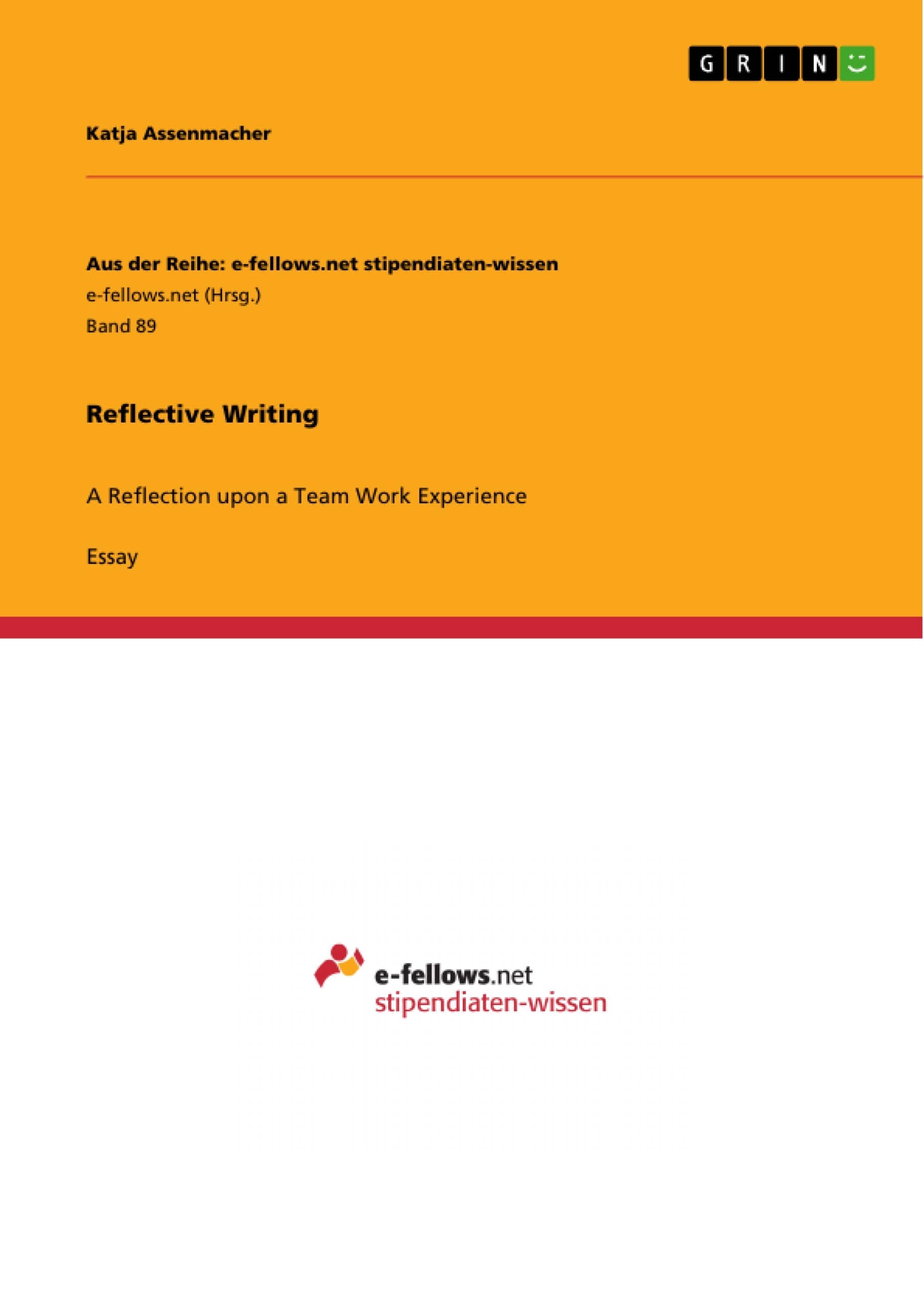At the beginning of the course when I first heard about the group work that we would be doing I was excited because I worked in teams before and enjoy working with others. However, I was uncertain how well we would be able to perform as a team because the semester is so short and there was little time to work on building a great team that works effectively.
Inhaltsverzeichnis (Table of Contents)
- Organisational Transformation in Practice
- The Challenge of Team Member Changes
- The Impact of Cultural Differences on Team Dynamics
- Leadership and Team Performance
Zielsetzung und Themenschwerpunkte (Objectives and Key Themes)
This reflective essay examines the author's experiences during a team work experience within a university course, focusing on the challenges and insights gained from working within a diverse and changing team environment. The author analyzes the impact of team member changes, cultural differences, and leadership on team dynamics and performance.
- The influence of team member changes on team cohesion and performance.
- The role of cultural differences in shaping team communication and conflict resolution.
- The impact of leadership on team dynamics and the importance of trust and appreciation within a team.
- The importance of open communication and confronting challenges within a team environment.
- The author's personal reflection on their own development as a team member and leader.
Zusammenfassung der Kapitel (Chapter Summaries)
The essay begins by detailing the author's initial anxieties about team work due to frequent changes in team membership. The author discusses the negative impact these changes had on team building and cohesion, drawing on theories from Belbin and Skyrme to support their observations. They also explore the role of the Drexler-Sibbet High-Performance Team Model in understanding team development and the impact of member changes on this process.
The author then focuses on the influence of cultural differences within the team. They recount an instance where a team member failed to complete an assigned task, highlighting the challenges of addressing such situations within a culturally diverse group. The author utilizes research from Hofstede, Hofstede, and Minkow to explain how cultural background can impact individual behaviour and potential conflict within a team. They also discuss Doherty and Guyer's findings on different conflict resolution styles across cultures.
The essay concludes with a reflection on the author's experience as a temporary leader during a team meeting. This experience led to a reevaluation of the importance of appreciation and support within a team. The author draws upon the works of Klein and Noer to support their observations on the importance of recognition and positive reinforcement within team dynamics.
Schlüsselwörter (Keywords)
The main keywords of this essay are: team work, team member changes, team cohesion, cultural differences, team dynamics, leadership, conflict resolution, communication, team performance, and cultural sensitivity.
Frequently Asked Questions
How do frequent team member changes affect performance?
Frequent changes can reset the team development process, negatively impacting cohesion, trust, and the ability to reach a high-performance stage.
What role do cultural differences play in team dynamics?
Cultural backgrounds influence individual behavior, communication styles, and conflict resolution, which can lead to challenges if not addressed with sensitivity.
What is the Drexler-Sibbet High-Performance Team Model?
It is a framework used to understand the stages of team development and how external factors like membership changes impact the team's progress.
Why is appreciation important in team leadership?
Recognition and positive reinforcement are crucial for maintaining motivation and fostering a supportive environment, especially in diverse teams.
How can teams better resolve conflicts arising from cultural diversity?
Open communication, understanding different cultural conflict resolution styles (as noted by Doherty and Guyer), and building trust are key strategies.
- Citation du texte
- Katja Assenmacher (Auteur), 2011, Reflective Writing, Munich, GRIN Verlag, https://www.grin.com/document/174867



